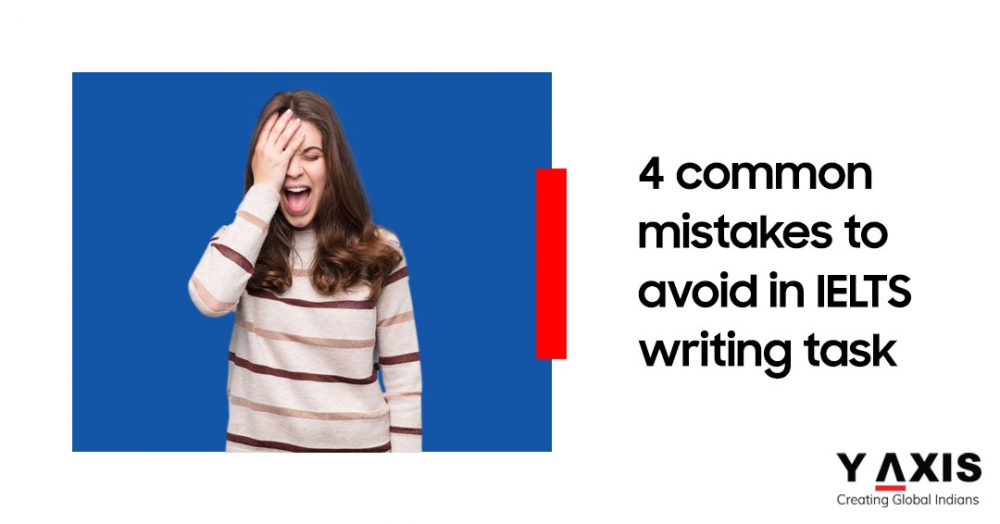Posted on August 27 2020
4 common mistakes to avoid in IELTS writing task
By , Editor
Updated April 03 2023

The IELTS writing section consists of two tasks, in Task 1 candidates will be given a task based on some information, presented in graphic and/or diagrammatic form. Candidates are expected to write a descriptive report of at least 150 words by comparing and contrasting the information and making connections between the two in 20 minutes.
In Task 2 candidates are given brief details of an opinion, an argument or a problem, and have to produce an extended piece of discursive writing in response. Candidates will have to write at least 250 words and, as Task 2 is longer than Task 1, it is better to spend about 40 minutes on this task.
Practice and prep work before the test will give you the experience and confidence to face the real test. But you may not be aware of certain common mistakes that you can make which will not be acceptable in your writing task. Here we focus on four common mistakes made by candidates which make them liable to lose marks.
1. Using informal languageFor your Speaking exam, informal English is fine but not for your Writing test. Though every informal word does not get penalized, the more formal your style is, the better your ranking. To show the difference, informal words like "loads of / lots of" should be replaced with ‘many’ or ‘much’.
2. Using contractionsContractions are "it's" rather than "it is," "I've" rather than "I have," "we 're" rather than "we are" (these are a few examples). Contractions in your essay are a terrible thing to use, they don't save you much time and will cost you marks.
3. Using slangYou can use slang when talking to your friends, but this is the only place it belongs to, in a conversation with friends. Take it out of your IELTS reports, letters or essays. For example, avoid writing “dunno” instead of “don’t know”, “wanna” instead of “want to” or “gonna” instead of “going to”.
4. Using SMS like languageWe 're all typing SMS messages, chatting on WhatsApp, and use a bunch of shorter ways to write longer words. We type "u" instead of "you," "c" rather than "see," "btw" instead of ‘by the way’. All of these should be avoided in your IELTS test unless you deliberately wish to get a score that is lower than you deserve. You will need to write and spell the full term correctly in your writing task.
Avoid these four common mistakes in your IELTS writing task to improve your marks and get the score you deserve.
With Y-Axis Coaching, you can take up online coaching for GMAT, GRE, TOEFL, IELTS, SAT and PTE. Learn anywhere, anytime!
Tags:
Share
Options for you by Y-Axis
Get it on your mobile
Get News alerts
Contact Y-Axis

